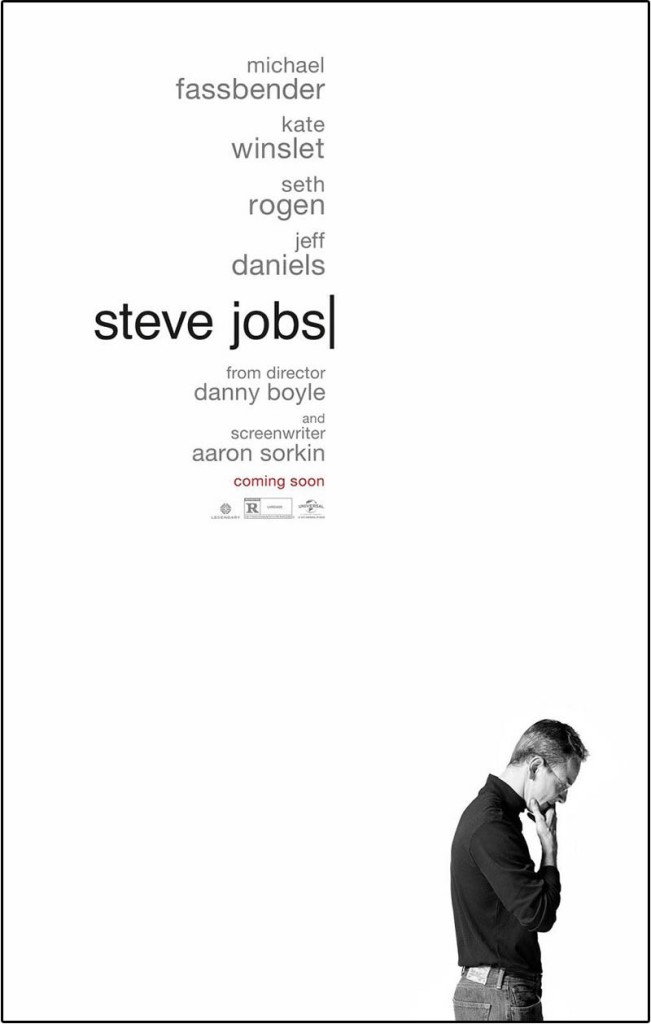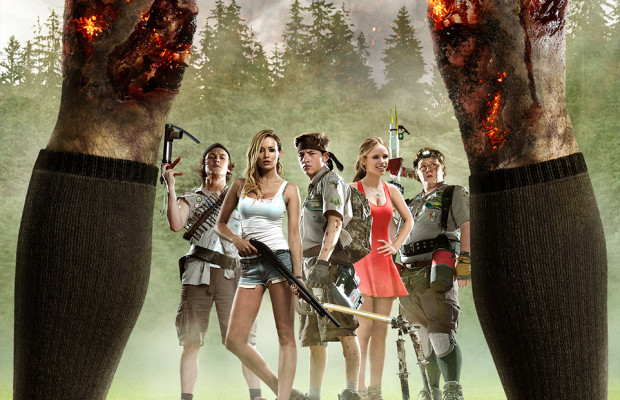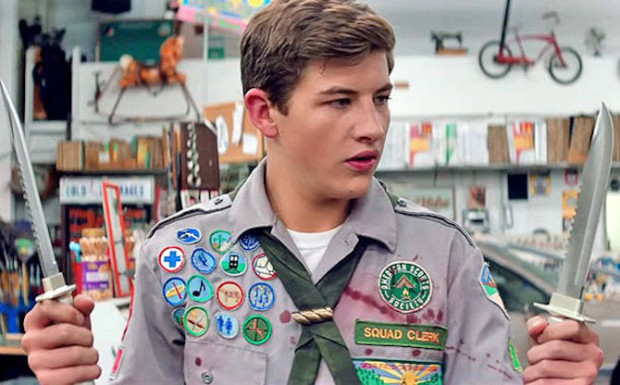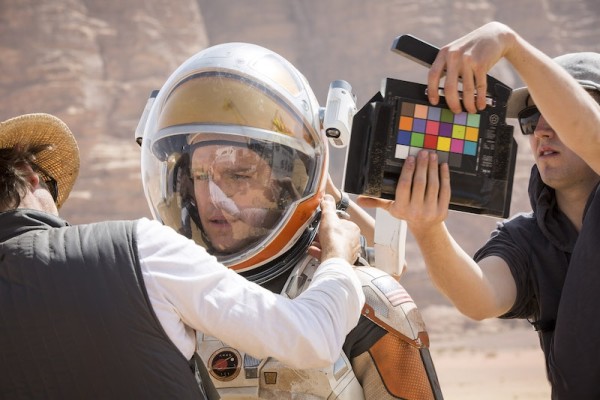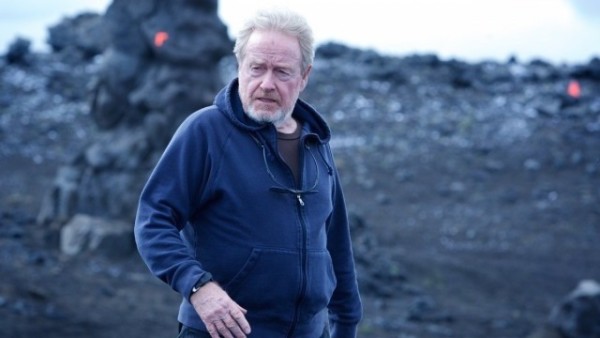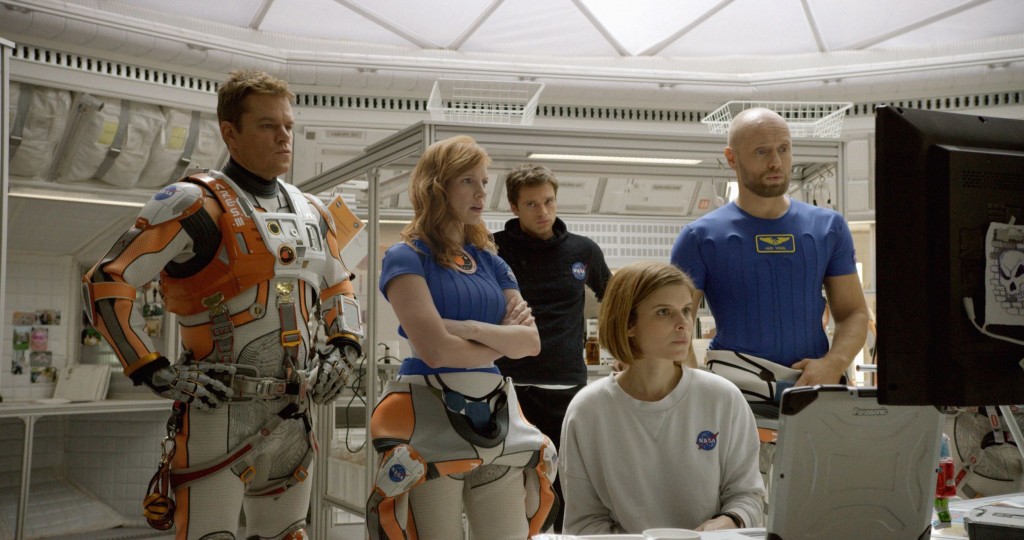Genre: Biopic
Logline: We follow Apple co-founder Steve Jobs through three of the most important presentations of his life.
About: Wait a minute, you’re saying. Didn’t they already make a movie about Steve Jobs starring Ashton Kutcher? Yeah, well, that was pretty much determined to be the B-movie version of the genius’s story. This was always going to be the “real” Jobs movie, as it was looking like a sure thing that Fincher would direct and Bale would star. In the leaked Sony e-mails, however, we learned many things about the tumultuous development of the movie, as then Sony head, Amy Pascal, was never 100% committed to the idea of making the film, especially after the other Jobs movie failed so spectacularly. But super producer Scott Rudin always believed in the project and eventually flew the coop to Universal, where the project now stars Michael Fassbender, and will be directed by Danny Boyle. Seth Rogen plays Apple co-founder, Steve Wozniak.
Writer: Aaron Sorkin
Details: 177 pages – February 2014 draft
Well buckle my shoe and call me Jerimiah.
I have seen writers take chances before in my life. But this has gotta be one of the biggest ever taken on this level. Sorkin has thrown ALL THE RULES OUT in writing this script and really put himself on the line in the process.
I mean… I’m not going to lie. I’m kinda shocked. Like, “Did that really just happen?” I’ll say this. I am NOT a fan of the traditional biopic. So I’m all for shaking the format up. But this? This is ballsy. I’m going to go as far as saying that this script is why this project caused so much consternation at Sony. Fincher on, Fincher off. Bale in, Bale out. Amy Pascal never really committing to the idea. I think people were scared of this script. And I don’t blame them. Just like the original Macintosh: It’s different.
I’ll try my best to break it down for you. The script starts in 1984 with Steve Jobs about to announce the Macintosh computer to the world. A few days back, Jobs debuted the now famous Mac Superbowl commercial and boy did it pay off. It’s gotten every major news outlet on the planet here at this auditorium eagerly anticipating the unveiling of the new revolutionary computer.
Sorkin uses a problem and a time constraint to build tension into the scene. The Mac is supposed to turn on and say “Hello” but the “Hello” part isn’t working and Jobs is screaming at the computer’s head tech, Andy Hertzfeld, to fix it before the demonstration begins in 30 minutes. In the meantime, Jobs tussles with a few people including Apple co-creator, teddy bear Steve Wozniak, over giving credit to Woz’s team during the speech, and Chrisann, his former girlfriend, who insists that he’s the father of her six year old daughter, Lisa.
Oh yeah, the court has declared Jobs the father as well, but Jobs refuses to accept the ruling and treats Lisa, a beautiful smart little girl, accordingly. He acts like she’s an alien and would rather take a bath in a tub of tarantulas than converse with her.
Cut to four years later where we learn, through TV news snippets, that the Mac launch failed big time and that Steve Jobs was pushed out of the company. Jobs has moved onto his next project, called the “NEXT Cube,” geared towards the educational market. And, once again, we’re meeting him at the launch presentation, a half hour before he’s to give his speech.
Once again, all the usual suspects come by, including Woz, Chrisann, and Lisa, and once again he tussles with them, this time with a little more humility because of some of the failures he’s been through. He’s also a little more accepting that Lisa is his daughter, but not all the way there.
Once again we get another flash-forward. This time 10 years goes by, and Jobs has been asked to come back to Apple. Once again he’s prepping for another big announcement – this one the classic see-through model that changed the game for Apple – the iMac. Once again he tussles with people before the presentation.
Lisa is now 19 years old, and he’s cut off her tuition to Harvard because of how much he hates Chrisann. Chrisann has repeatedly, throughout her life, milked Jobs for money under the guise of raising her daughter, and then spent the money herself. And he’s had it. When Lisa comes to talk to him, they finally have it out, everything is thrown on the table, and Jobs has to decide what kind of man – or actually – what kind of FATHER he wants to be. And that choice isn’t just going to affect his relationship with his daughter. It’s going to affect who he is for the rest of his life.
So yeah, you read that right. This movie takes place in three auditoriums before three presentations and lasts 177 pages. In classic Sorkin style, it is ALL dialogue. And that makes things read a little faster than the ginormous 177 number would indicate. But man… I mean…
I REALLY wanted to love this because I respect the hell out of a writer who’s not willing to rest on his laurels, really put himself out there, and just go for it. This is why Sorkin won an Oscar. He’s fearless. But as I talk about today in my Scriptshadow article, taking risks results in either big rewards, or big failures. There’s rarely an in-between.
Here was my issue with “Steve Jobs.” The sequences were too similar. We jump from waiting for a presentation to waiting for a presentation to waiting for a presentation. And these sequences range from 40-60 pages each! It just became too repetitive and even if you’re a dialogue master like Sorkin, it’s hard to keep something fresh if the format is never changing.
Don’t get me wrong. I know the script is really about the evolving relationships with the characters. But to be honest, the only real interesting relationship was the one with his daughter. All the other relationships are pretty bland. I mean the one with Woz, which takes up about 25 pages total in the script, amounts to “Can you please mention the Apple-II team when you introduce the Mac?” I understand that there’s a little more going on in this exchange but we get the gist by the second page of their argument. Yet we still have 23 more pages to go.
On top of all this, Jobs is a tough character to like. And as you know, if we don’t like the main character, it’s really fucking hard to commit to his journey for 177 pages. I thought about this a lot – because in many ways, Jobs is similar to Mark Zuckerberg, who Sorkin famously chronicled (and won an Oscar for) in The Social Network. They’re both selfish ego-driven workaholics.
But there’s one key difference between them. Mark Zuckerberg actually created something. He built Facebook. And he stood up tall to the entitled bullies trying to take his money for doing so. As is made very clear in “Steve Jobs,” Jobs didn’t create anything. He didn’t build a computer. He didn’t code the operating system. He was just a glorified pitch man. Combined with him being a total asshole, compounded by him rejecting the existence of his own daughter, it was too much to overcome. I just couldn’t root for the guy.
The golden rule for likability is that you don’t need your hero to be likable as long as he’s interesting. But Jobs isn’t interesting. He’s just a selfish prick.
So now you have a 177 page screenplay, an unlikable main character, and a structure that repeats itself. Can I have an extra order of eggs with those impossible odds?
I will say that I liked the last sequence when Lisa was grown up and finally able to battle her father on the issues he’d had with her. It was the first time the script really came alive and a lot of that had to do with there being no easy answers. Chrisann had leached money off Jobs under the façade of helping her daughter, then repeatedly used the money for herself. When it was time to sell the house Jobs had bought for Chrisann, she sold it for 500 grand, 1 and a half millions dollars less than it was worth, presumably to spite Jobs. And Lisa had helped her do it. So now Jobs was just supposed to fork over her Harvard tuition? There were so many emotions and so much betrayal and frustration wrapped up in that money that he couldn’t allow himself to do it. That led to the sweetest moment in the screenplay, where he finally realizes that this is his daughter and he has to do whatever she wants. There was no right or wrong in that. And in this way, we finally see Jobs grow.
But the overall experience here, while ambitious, is too muted. I don’t know if this is a movie so much as a play. And even as a play, it’s long and repetitive. I will say this. Sorkin was tasked with a tough job. I tried to read the Steve Jobs biography and holy shit is it dry. And I’m sure Sorkin read it and felt the same thing. He said to himself, “The only way this is going to work is if I do something radically different.” And so he gave it a shot. Unfortunately, the shot didn’t pan out. It’s a noble misfire but it’s still a misfire.
[ ] what the hell did I just read?
[x] wasn’t for me
[ ] worth the read
[ ] impressive
[ ] genius
What I learned: Today’s script is a great example of “leading.” Take the opening sequence. We set up the speech where Jobs will introduce the Mac in half an hour. So the entire 30 minutes prior to that speech is LEADING somewhere. Take the leading element out (the impending speech) and just have Jobs talking to people without an impending presentation, and we lose interest. Why? Because we don’t know where we’re going. “Leading” gives the audience something to look forward to. In the process, it helps us concentrate until the leading element arrives.
What I learned 2: The power of villains – In The Social Network, Sorkin creates villains, the Winklevoss twins, which allows us to root for Zuckerberg, despite Zuckerberg being a hard-to-like guy. In “Steve Jobs,” Jobs is the villain. I think that’s why we’re never really on board with him. This would’ve worked a lot better if there was a truly evil adversary Jobs needed to defeat.
Genre: Horror-Comedy
Premise: (from IMDB) Three scouts, on the eve of their last camp-out, discover the true meaning of friendship when they attempt to save their town from a zombie outbreak.
About: This script somehow made the 2010 Black List. It has steadily moved through the system, securing actor Tye Sheridan (Mud) and director Christopher Landon (Paranormal Activity: Marked Ones). It was written by comedy team Emi Mochizuki and Carrie Lee Wilson, whose only previous credit was the 2008 Martin Lawrence film, College Road Trip. The movie hits theaters later this fall.
Writers: Emi Mochizuki and Carrie Lee Wilson (the production draft you see in theaters was rewritten by Christopher Landon and Lona Williams).
Details: 114 pages (2010 draft that made the Black List)
Boy Scouts Vs. Zombies was one of the last of the zombie wave of scripts to sell back in 2010. You have to remember that this was during a time where a script titled “Zombie Baby” sold. A 2010 zombie spec was the equivalent of a lottery ticket. It was the trend that wouldn’t stop trending, kind of like biopics today.
Still, this specific sale has always baffled me. There’s nothing inherently clever or ironic about the premise. It’s so arbitrary, it’s as if they picked a random group of people, said, “Let’s pit them against zombies,” and that was it.
It’s no different from “Clowns vs. Zombies,” or “Politicians vs. Zombies,” or “Skaters vs. Zombies.” There’s no clear connective tissue between this group and the undead.
“Grocery Store Employees vs. Zombies!”
Yet still they managed to get one of the hottest young actors in Hollywood to join the film. What’s up with that?? I mean this guy was in Mud and Tree of Life. Was his agent high when he read this? “Okay Tye, you’ve worked on some pretty impressive stuff so far. But I found something can’t-miss. Are you ready for this? Boy Scouts. Vs. Zombies. Waddaya say?”
All of this supports my belief that the way things get made in this town is passion. This is the furthest thing from a quality project, yet clearly, somebody believed in it and put all of their effort into pushing it through the system. If you want to know why bad movies get made, this is why. Bull-headed producers who stop at nothing to get that theatrical release.
The “plot” to Boy Scouts vs. Zombies has our core crew of boy scouts, each 14 (there are 14 year-old boy scouts??), heading to the island of Playa Del Amor to engage in some weekend boy scout tomfoolery.
There’s Dylan, the cool one, Matt, the proud one, Lloyd, the geeky one, and then a few other human versions of Swiss army knives. The group is led by asshole assistant scout leader, Scott, and “takes this way too seriously” scout leader, Gary.
Little does the group know that on Playa del Amor, there’s a hidden research facility, and that some guy who works there named Carlos just got infected with the zombie virus. Carlos is able to escape from the facility, where he then mauls a few campers.
“Lawyers vs. Zombies!”
As Dylan, Matt, and Lloyd finalize plans to invade a high school house party (I guess there’s a high school on this island??), their plans are interrupted when some local islanders try to, well, eat them.
Unlike most zombie movies where the main characters don’t know what zombies are, our group is well-versed in zombie lore and know that they must get the hell off of this island or embrace an afterlife of animated rotting flesh. Unfortunately, they have to rescue some girl scouts first, and that’s where everything falls apart.
Boy Scouts vs. Zombies lies somewhere between Goonies and Piranha 3D. It wants that pure B-movie wackiness of Piranha, with a bit of the “kids in danger” heart that drove Goonies. And that’s its problem. Because it tries to be both, it does neither well, and what’s left is its surface-level infatuation with introducing zany zombies.
For example, someone gets bitten inside one of those blow-up sumo suits and becomes “sumo zombie.” And hey, that’s a fun idea, sure. But if all you’re doing with your zombie film is trying to come up with fun zombies, you’ve failed. I’m sorry, but you’ve failed big time.
Screenplays are supposed to be about characters. Connect us with the characters by making them relatable, by giving them flaws we can identify with, and then create problematic relationships (which are also relatable) that need to be resolved. Even if you only achieve the bare essence of this, you’ll probably make us care.
We don’t get that here. There’s a half-assed storyline where Matt is going to private school, leaving his best friend Lloyd all alone, but you get the feeling that the writers cared about that relationship 1/10th as much as they cared about sumo zombie.
And make no mistake. The audience feels that. They feel when you don’t give a shit about your characters.
“Pizza Workers vs. Zombies!”
Speaking of characters, there’s something that’ll happen when I read a script that’s a dead giveaway that I’m reading a bad writer.
As any script reader will tell you, sometimes you forget a character. Maybe their intro sucked. Maybe there were too many characters being introduced together and they got lost in the mix. Whatever the case, I can’t remember the character when his name is brought up again, which leaves me scrambling to figure out who they are.
Now if you’re a good writer, your character will speak and act in a way that’s so unique to them, that I’m able to pick up who the character is without having to go back and re-read the intro. This is ESPECIALLY true with comedy, where characters are exaggerated.
There’s a character named “Jim” here, who’s apparently a main character, whose introduction I missed. Every time he showed up in a scene, I’d try to remember who he was. But because his dialogue and his actions were so generic – because there wasn’t anything unique about what he did or said (or how he said it), I never knew who he was. He was a bland blob for all I knew.
This is important. Your character intro should not be the sole thing conveying who your character is. He/she must continue to act/speak in a unique enough manner that we’re able to identify them regardless of their introduction. In fact, we shouldn’t even have to see their name to know who they are.
“Truck Drivers vs. Zombies!”
Take a script like The Hangover. If you missed Stu or Alan or Phil’s intro, you still would’ve known who those characters were based on their words and their actions. Alan with his complete lack of social awareness, Stu because of how freaked out and OCD he was. Even the blandest of the three, Phil, was a narcissistic asshole who just wanted to have a good time, and that was evident every time he spoke.
You barely see any of that here.
And the script doesn’t even do a good job in the one area it cares about – the funny. There’s one memorable scene, when the group is attacked by a bunch of zombie bunnies. But other than that, it’s sumo zombies, bikini-girl zombies, and Chuck Norris jokes (yes, the second lowest joke on the joke totem pole, right above a fart).
In the end, I think this boils down to a flawed premise. Why a zombie movie about boy scouts? It’s too random – the kind of logline that wouldn’t have even made the Top 250 of my contest. Where’s the clever? Where’s the irony? I’ll be honest. I’m baffled this script was A) picked up and B) made. This freaking movie is getting a theatrical release! Can someone explain this to me??
[ ] what the hell did I just read?
[x] wasn’t for me
[ ] worth the read
[ ] impressive
[ ] genius
What I learned: Let’s say a law was passed that prevented you from writing traditional introductions to your characters (“JOE, 20, is a space-cadet with a penchant for pinball”). Would your characters still be identifiable based on their actions and their words? If not – if you NEED your character introduction to do all the work for you – it means you’re not focusing hard enough on expressing your character through action and dialogue.
“Dog Walkers vs. Zombies!”
Is The Martian the best movie of the year?
Genre: Sci-fi
Premise: When an astronaut is mistakenly left on Mars, he will have to draw upon all of his survival skills to stay alive until NASA can rescue him.
About: The Martian was a huge self-published e-book success, which led to a major book publisher buying and repackaging the novel (selling it for a lot more money, of course), which led to 20th Century Fox buying the film rights, which led to Ridley Scott and Matt Damon coming onto the project, which led to production this past year, which led to it coming out this weekend, which led to a 100 million dollar worldwide weekend. Cabin in the Woods writer Drew Goddard adapted the novel from Andy Weir.
Writer: Drew Goddard (based on the novel by Andy Weir)
Details: 2 and-a-half hours
The Martian is an awesome film. It may even beat out Fury Road as my favorite film of the year (way to keep the suspense going from that header, huh?). That’s because while Fury Road was pulse-poundingly awesome, The Martian actually made me feel something. This is the kind of film that reaches inside of you, twists your insides around, before wrapping you in a big warm motherly hug.
It’s also a movie every screenwriter should watch as it plays with the format enough to challenge it, yet always stays respectful of the storytelling techniques that make movies work. This is the first project I’ve ever reviewed as a book, then a script, then a movie, so I’ve seen it go through all of its incarnations. Watching that metamorphosis happen has allowed me to observe the specific choices the filmmakers made that turned this into one of the best movies of the year.
For those who don’t know anything about The Martian, it follows a botanist-astronaut named Mark (as in one letter removed from “Mars”) Watney, who’s been left up on Mars after he was presumed dead during a violent storm. Mark realizes he has 300 days worth of food, and the next Mars mission is 1400 days away. Mark will have to turn to science to bridge that gap.
At a certain point, NASA realizes that Mark is still alive, makes contact with him, and over the course of the next couple of years, the two sides plan a rescue. Of course, everything that can go wrong does go wrong, and the final rescue is fraught with so many hiccups that it is literally a 1 in a million shot. Will they bring Mark home? Or will Mark become the first ever human being taking up permanent residence on the big red planet?
So if you remember, the thing that always worried me about this project was time. Mark Watney is stuck on Mars. And we’re told it will take four years to save him. For those of you who read the site regularly, you know the final essential ingredient for my screenplay formula (GSU) stands for “urgency” (the first two stand for “goal” and “stakes”). If your hero’s problem doesn’t feel like it needs to be solved RIGHT NOW, there’s a good chance the story will move to slowly for the audience and they’ll get bored.
I’m not the first one to say this. Practically every professional screenwriter will tell you the same thing. However, despite forever-away four year ticking clock, The Martian never once felt slow. So the question becomes, how the hell did they pull that off?
This is the first time in a long time that I’ve felt like I learned something BIG from a movie. The Martian taught me that if you don’t have an urgent timeline, you can create urgency in the moment. That in-the-moment urgency will then distract the audience from the big goal being so far away.
For example, Mark Watney learns that he’s stuck on Mars for four years. However, Mark has a very pressing issue RIGHT NOT. He’s got to learn how to grow food or else he dies. What follows, then, is a sequence (a mini-movie basically) where Mark figures out how to grow food.
We are so riveted by this objective that we’re not thinking about the four years. We’re thinking about right now. We’re thinking, is Mark going to learn how to grow food RIGHT NOW? In a way, it’s a distraction technique. Distract the audience by entertaining them in the moment.
We see this approach being used throughout the movie. When Mark’s finished with the food, he must learn how to create water to grow the food. He then must figure out how to communicate with Earth. When he’s done with that, he has to figure out how to get a truck, that was only meant to drive 20 miles, to drive 1000.
For you advanced screenwriters, you’ll see that sometimes Goddard switches the current story goal over to NASA. When you’re a beginner, you focus on keeping your main character goal-oriented, but when you get some experience, you realize that as long as SOMEONE in the script has an immediate goal that matters, the story will continue moving.
So for example, at a certain point, NASA must figure out how to send a re-supply ship to Mark. That’s their goal. And for a 12 minute sequence, that’s what drives the story.
Another thing The Martian does that I’m constantly telling you guys not to do, is it offers a complex story. What do I always say? Simple story, complex characters. Not the other way around.
Here we have a super long timeline. We have TONS of characters. We’re jumping around a lot. It’s far from the simplicity of a movie like Taken or Die Hard. So why does it still work? Because The Martian’s storyline is so clear. Let me repeat that. A complex story only works if the engine behind the story is EXTREMELY clear.
We are NEVER confused about what’s happening here. Mark Watney needs to be rescued. That’s it. It’s a very clear setup. In addition to this, Drew Goddard does a great job CHECKING IN on us. “Checking in” is the process by which you remind the audience what it is the characters are doing and why. If your story is even remotely complex, you will rely on checking in.
Contrast this with a similar movie that DIDN’T check in enough. Interstellar. There were times in that movie where we weren’t sure what it was Matthew McConaughey’s character was doing. He was visiting 8 planets or something? Looking for a solution to earth’s food problem? All while Michael Caine was create a gravity-machine to lift the earth’s population into space. What??
If, in The Martian, NASA needed to build and send a supply ship to Mark, there was a scene where the characters clearly discussed this. They told us why they were doing it and what the repercussions were if they failed. The combination of a VERY CLEAR OVERALL GOAL and constant CHECKING IN made this seemingly complex story easy to follow. That’s strong writing.
The script also offers some advanced screenwriting techniques, one of them being WEAVING (in the past I’ve referred to this as “interweaving.”). Okay, this might be hard to follow so pay attention. When you write a movie that has a series of goals one after another, like this one, you run the risk of the script becoming too compartmentalized.
You end up breaking things into very obvious sequences that occur in an overly-ordered sequential fashion.
1) Mark Watney must figure out how to grow food.
2) Mark Watney must figure out how to make water.
3) Mark Watney must figure out how to communicate with Earth.
4) Mark Watney’s bay just blew up. He must put it back together.
While there’s nothing wrong with this, especially if the story is compelling, good writers weave these compartments into one another so that the story feels more organic.
For example, two of the goals Watney must achieve are a) figure out how to communicate with earth and b) figure out how to drive his truck 1000 miles to the rescue destination.
If you’re thinking about these story beats in a linear fashion, the placement of each sequence is obvious. You first write the sequence where Mark goes to find the old Mars rover so he can communicate with earth, and then, later in the story, when it’s time for Mark to get his truck to the rescue point, you write the sequence where Mark figures out how to make a limited 20-mile truck drive 1000 miles.
And it would be fine if you did it this way. But what WEAVING does is it takes a part of a future sequence, and sets it earlier in the story, so as to break up the monotony of this “And then this happens, and then this happens, and then this happens” ordering.
So Watney actually starts testing his 1000 mile truck drive BEFORE he deals with the communication problem, despite the communication problem being the immediate problem he has to deal with. It’s this displacement of events that keep a story from feeling too structured. And with screenwriting being such a structure-heavy form of storytelling, this is an invaluable tool to have in your arsenal.
Moving on, one of the hardest things to do in an adaptation is decide what stays and what goes. Goddard did an amazing job here. He knew exactly the story beats to include and got rid of all the fat. There was one part he got rid of, however, that surprised me. When I first reviewed The Martian in book form, one of the big story beats was the final drive to the rescue point, which included a HUGE STORM Watney had to drive into.
It was the perfect final obstacle to Mark Watney’s incredible journey. He was so close after all this time, yet now this storm threatened everything. At the time, I noted they should consider building the story around this storm. Start with Mark Watney driving through the storm, then tell the story in flashback form, so you had to include the exciting parts of his Mars stay.
In the final film, however, there is no storm. It was eliminated from the story.
And you know what? They were 100% right to get rid of it. While the storm did provide a huge obstacle, Goddard and Scott realized that we had just spent 2 hours watching Watney battle every obstacle imaginable. The audience was ready for the climax. One more big obstacle would’ve felt like one too many.
And that was a big lesson to me. I love throwing obstacles at characters. It’s the lifeblood of storytelling. But there comes a time when it’s too much – when you need to dress your hero up in that gown and get them to the ball. Mark Watney was ready to dance.
The final masterful stroke of this film was one of the most age-old storytelling techniques there is. MAKE THE SITUATION IMPOSSIBLE. The Martian is all about Mark Watney surviving the impossible, over and over again, much like they did with Gravity. But they went a step further. They made sure the CLIMAX was THE MOST IMPOSSIBLE SITUATION OF ALL.
[spoilers below]
And that’s a lesson I want you to take away from this. Make the situation impossible. But make the ending ESPECIALLY IMPOSSIBLE. Mark Watney has to blast into space in a capsule that has a TARP for its top. The ship rescuing him is only going to have one shot to catch him and it’s going WAY TOO FAST to do so. The attempted meeting point is way off. At one point, Mark must puncture his own suit to use as a jet to guide him to the ship. I mean WTF!!!!
The reason the end of The Martian is so impactful is because they make it seem like there’s no chance for success. The odds are just too far out of Mark’s favor. So when they actually succeed, we’re so shocked, we’re overcome with emotion.
Not enough writers challenge their heroes during a screenplay. They’re afraid to put them in the worst situation possible because, frankly, they’re not sure how to get them out of it. But part of your job as a screenwriter is to say, “how can I make this as bad as possible for my hero” and then, after you’ve put them in that terrible situation, rely on your intelligence and imagination to get them out of it.
But if you never put them in the bad place to begin with, chances are your story’s going to lack drama.
The Martian is a masterful movie on every level. There are so few cracks in its armor that it’s borderline perfect. It’s Cast Away for a new generation. If you haven’t seen this movie, drop what you’re doing right now and do so!
[ ] what the hell did I just read?
[ ] wasn’t for me
[ ] worth the read
[xx] impressive
[ ] genius
What I learned: Create urgency WITHIN the moment. If the timeline of your screenplay is long, like The Martian, look to create a series of sequences that contain urgency. If your reader is focused on the urgency of the moment, they’ll forget about the lack of urgency in the long run.
I just wanted to say THANK YOU to everyone who entered the contest. Don’t get down on yourself if you didn’t make it. There were a good 50 scripts right on the cusp of getting in that missed for a variety of reasons. The biggest reason was that their idea didn’t feel big enough for a feature film treatment.
Even if you aimed for the indie market, you still have to have that idea that stands out. And I think a lot of writers sent in ideas that didn’t have enough irony, didn’t have enough conflict, or didn’t have that unique element. With that said, a few writers who had really stellar pitches were able to overcome this limitation. But overall, if your idea didn’t stand out in some way, there were enough entries that you fell by the wayside.
But don’t let that get you down. The people who succeed in this business are the ones who persevere. If one script doesn’t work, they go on to the next one, and then the next one. Sooner or later, everything comes together and you write something great. I see that breakout moment happen for a writer every few weeks in this town.
As for what happens next, I’ll be reading these scripts over the next couple of months. So at some point in December, I’ll be announcing the Top 25. Those scripts will then get read by Grey Matter, who are chomping at the bit to see what you guys have come up with.
For those who didn’t make it, feel free to share your logline and/or your e-mail pitch in the comments below. While you won’t know for sure why *I* passed you over, the always awesome Scriptshadow community may be able to give you an idea on what was missing from your pitch/logine.
Again, thank you to everyone who entered!
EDIT: Okay, everyone who made it is asking if they can send in a new draft. Since we’re trying to find the best script, and I’m tired of all of you trying to trick me (“Oh, Carson. I think I sent you the wrong draft. Here’s the correct one.” Come on guys, how dumb do you think I am??), you can send in a new draft if you do so by Tuesday 11:59 pm Pacific Time. It must be sent as a REPLY E-MAIL to the acceptance e-mail I sent out. Back to work!
I know you’re all wondering about the Scriptshadow 250. I’ve already started e-mailing the top 250. I’m going to be doing that ALL DAY. Since I’m also going to the movies, I may be e-mailing some people deep DEEP into the night. But if you haven’t received an e-mail by midnight Sunday (Pacific Time), it sadly means you didn’t make the cut. Make sure to check your spam and promotions folders just in case. And to help you pass the time so you don’t go insane, here are 5 amateur screenplays to check out. Vote for your favorite in the comments. To make it easier on me, place your vote (My Vote = Script Title) at the top of your comment. Thanks. This should be a fun day!!
Title: By Forces Unseen
Genre: Thriller
Logline: A drifter with a secret past finds friendship and love in Portland’s animal liberation underground, but the longer she stays, the more she puts everyone at risk.
Why you should read: Our relationships with animals are complicated, if not morally schizophrenic – pet this one, eat that one. Is the Animal Liberation Front made up of heroes willing to risk their freedom to save animals, or are they violent terrorists? Or something else? Regardless, I think these people lead interesting double-lives.
Title: Pinchers
Genre: Comedy, Horror, Sci Fi
Logline: The 100th annual Crab Fest is right around the corner and a small town starts to experience a series of grisly murders that could be the work of a serial killer… or giant crabs.
Why you should read: As a fan of Scriptshadow, I wanted to submit something that was a little more “fun”. There’s a lot of great scripts that come through the site, but I feel like there aren’t a lot that fit into that “Tremors” or “Pirahna” mold. I wanted to submit Pinchers because I wanted to submit something that’s meant to be watched on late night cable with beer and pizza. I’m excited to get feedback from a community of writers who may not read these types of scripts that often. After reading your review of “See Something” I thought it would be interesting to get your thoughts on a script like “Pinchers”.
Title: La Guerra! (Spanish for War!)
Genre: Action, Comedy
Logline: A couple, who together runs a powerful drug cartel, files for divorce and ignite a turf war when neither party can reach an agreement as to who gets what share of the massive empire they’ve built.
Why you should read: I’m all about the big idea. The big concept. This script is proof of that. Not too long ago, you had a post asking everyone to talk about the kind of movies that they want to see made. Well, I only write the kind of movies that I want to see. This being one of them. I believe this has the potential to be one of those fun, summer tentpole movies. But is it any good? I’ll let you decide…
Title: Born to Die
Genre: Horror-Thriller
Logline: A career con-man with a terminal illness gets a last chance at survival and redemption when the CIA tap him to help locate an old associate thought to be the source of a zombie pandemic.
Why you should read: As for me, I’m a Chicago-based amateur screenwriter focused on features and pilots and like everybody, looking for representation. I’m also looking to learn and improve as much as I can with each script. “Born to Die,” is a horror crime-thriller in the vein of “28 Days Later” meets “Zero Dark Thirty.” (i.e. Zero Dark Zombie) The zombie genre is well-trodden territory but what my story aims to do is focus on character, spine-tingling thrills, and thoughtful twists to create a unique take on why audiences find these films terrifying and compelling. It blends the horror and crime-thriller genre with the goal of creating an intelligent, thrilling, and terrifying script with a unique voice.
Title: The Only Lemon Tree on Mars
Genre: Science Fiction
Logline: When recent, inter-global events threaten to disrupt the idyllic life on the first Mars Colony, a woman with a secret to hide must do all that she can to prevent neighbors in her small town from taking up arms against each other.
Why you should read: I believe that audiences want to be challenged. Why? Because I go to the movies a lot and I like to be challenged. So, it stands to reason that when writing I choose topics that are challenging with characters who are flawed but relatable. This is what led me to write “The Only Lemon Tree on Mars.” Like all good sci-fi there’s an allegory about today buried in there; specifically the modern political process. And although there are a few action beats, it’s really a drama about a woman struggling to make the world better despite the machinations of men. Most importantly, she does this by being a woman, and not acting like a man. In this day and age, that’s an important distinction.

